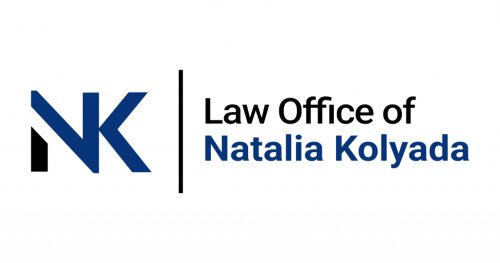Best Accounting & Auditing Lawyers in Georgia
Share your needs with us, get contacted by law firms.
Free. Takes 2 min.
Or refine your search by selecting a city:
List of the best lawyers in Georgia, United States
About Accounting & Auditing Law in Georgia, United States
Accounting and auditing law covers a range of regulations and compliance requirements that govern how businesses and individuals in Georgia, United States, record, manage, report, and review financial information. These laws are essential for ensuring the accuracy and integrity of financial statements, protecting investors and stakeholders, and maintaining public trust in financial reporting. In Georgia, accounting and auditing regulations are shaped by state laws, federal statutes, and professional standards set by authorized bodies such as the Georgia State Board of Accountancy. Accountants, auditors, and their clients must comply with these rules to avoid civil or criminal penalties.
Why You May Need a Lawyer
There are numerous situations where individuals or businesses may require legal assistance related to accounting and auditing in Georgia. Legal counsel is especially important for:
- Disputes involving financial statements and their accuracy
- Allegations of fraud, embezzlement, or financial misrepresentation
- IRS or Georgia Department of Revenue audits
- Claims of professional malpractice against accountants or auditors
- Compliance with state and federal accounting standards
- Mergers, acquisitions, or dissolutions where financial reviews are critical
- Preparing for and responding to subpoenas for financial records
- Defending against or pursuing litigation involving financial records or audits
A knowledgeable lawyer can help interpret complex accounting and auditing laws, draft and review documentation, and represent clients in legal proceedings.
Local Laws Overview
Georgia’s accounting and auditing legal framework is built upon state statutes, administrative rules, and oversight by licensing bodies. Key aspects include:
- Licensing: Accountants and auditors must be licensed by the Georgia State Board of Accountancy, which sets out rules for education, examination, and continuing education.
- Professional Standards: Practitioners must adhere to standards set by the American Institute of Certified Public Accountants (AICPA) as well as GAAP (Generally Accepted Accounting Principles) and GAAS (Generally Accepted Auditing Standards).
- Record Keeping: Georgia requires specific periods for retaining financial records and clear protocols for access to them.
- Ethics Rules: Strict ethical guidelines apply to accountants and auditors, especially concerning confidentiality and conflicts of interest.
- Disciplinary Actions: The state board investigates complaints and can impose sanctions such as fines, license suspension, or revocation.
- Regulation of Public Accounting Firms: Firms must comply with registration, quality control standards, and peer review processes.
It is essential to consult legal professionals or state authorities for the most current requirements as laws and regulations can change.
Frequently Asked Questions
What does a Certified Public Accountant (CPA) do in Georgia?
A CPA in Georgia performs accounting services, prepares tax returns, conducts audits, and provides financial consulting. They must be licensed through the Georgia State Board of Accountancy and follow state and national professional standards.
What is the difference between accounting and auditing?
Accounting involves recording, summarizing, and reporting financial transactions. Auditing is the independent review and evaluation of financial statements and records to ensure accuracy and compliance with laws and regulations.
How can I verify the license of an accountant or auditor in Georgia?
You can confirm the license status of an accountant or auditor by searching the Georgia State Board of Accountancy’s online database or contacting the Board directly.
What laws regulate accountants and auditors in Georgia?
Accountants and auditors are regulated by the Georgia Accountancy Act, administrative rules issued by the Georgia State Board of Accountancy, and relevant federal laws such as the Sarbanes-Oxley Act.
When can an accountant be held liable for malpractice?
Accountants can be held liable for malpractice if they fail to meet professional standards, commit errors or omissions, engage in fraud, or violate fiduciary duties resulting in financial harm to their clients.
What are the penalties for accounting and auditing violations in Georgia?
Penalties may include fines, suspension or revocation of licenses, restitution payments, and, in severe cases, criminal charges such as fraud or embezzlement.
How long are financial records required to be kept in Georgia?
Record retention periods vary depending on the type of record and applicable laws, but many business and financial records must be kept for at least five to seven years.
What should I do if I am audited by the IRS or Georgia Department of Revenue?
If you are audited, consult an attorney and a licensed accountant immediately to review your records, prepare documents, and communicate on your behalf with the auditing agency.
Can an accountant represent me in court during a dispute?
While accountants can act as expert witnesses, only licensed attorneys can represent you in court. Accountants and lawyers often work together on litigation involving financial matters.
How can I file a complaint against an accountant or auditor in Georgia?
Complaints about unethical conduct or malpractice by an accountant or auditor can be filed with the Georgia State Board of Accountancy. The board will investigate and may take disciplinary action if warranted.
Additional Resources
If you need further information or support regarding accounting and auditing in Georgia, consider these resources:
- Georgia State Board of Accountancy - Oversees licensing, regulation, and enforcement for accountants in the state
- Georgia Department of Revenue - Information about tax obligations, audits, and taxpayer rights
- American Institute of Certified Public Accountants (AICPA) - Professional standards and resources for CPAs
- Internal Revenue Service (IRS) - Federal tax and audit guidance
- Local Bar Associations - Can provide referrals to qualified legal professionals in accounting and auditing law
Next Steps
If you believe you require legal assistance regarding an accounting or auditing issue in Georgia, start by gathering all relevant financial records, correspondence, and documentation. Research and contact a qualified attorney with expertise in accounting and auditing law. You can find professionals through the State Bar of Georgia, local bar associations, or referrals from trusted advisors. During your initial consultation, discuss your situation openly, ask about the attorney’s experience in this specific area, and verify their credentials. Acting sooner rather than later can help ensure your rights are protected and your matters are resolved efficiently.
Lawzana helps you find the best lawyers and law firms in Georgia through a curated and pre-screened list of qualified legal professionals. Our platform offers rankings and detailed profiles of attorneys and law firms, allowing you to compare based on practice areas, including Accounting & Auditing, experience, and client feedback.
Each profile includes a description of the firm's areas of practice, client reviews, team members and partners, year of establishment, spoken languages, office locations, contact information, social media presence, and any published articles or resources. Most firms on our platform speak English and are experienced in both local and international legal matters.
Get a quote from top-rated law firms in Georgia, United States — quickly, securely, and without unnecessary hassle.
Disclaimer:
The information provided on this page is for general informational purposes only and does not constitute legal advice. While we strive to ensure the accuracy and relevance of the content, legal information may change over time, and interpretations of the law can vary. You should always consult with a qualified legal professional for advice specific to your situation.
We disclaim all liability for actions taken or not taken based on the content of this page. If you believe any information is incorrect or outdated, please contact us, and we will review and update it where appropriate.
Browse accounting & auditing law firms by city in Georgia
Refine your search by selecting a city.










